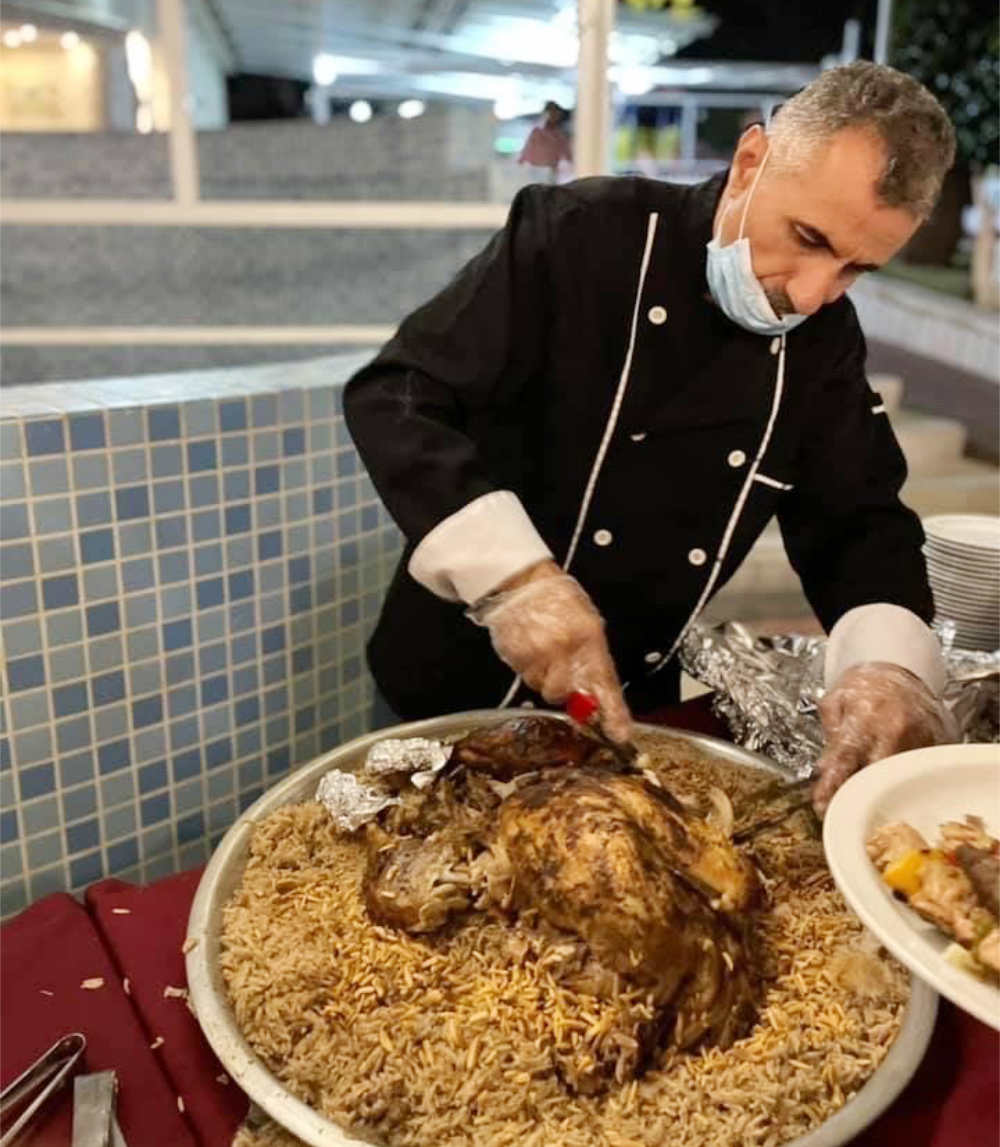GAZA CITY: Struggling restaurants in the Gaza Strip, many still counting the cost of pandemic curfews and now facing a worsening economic crisis, are counting on Ramadan to provide a much-needed boost in revenue.
The holy month is traditionally the busiest time of the year for Gaza’s hundreds of eateries, with the number of diners up by as much as 50 percent.
Local businesses and institutions also provide banquets for employees and sometimes beneficiaries, adding to restaurant trade.
Despite the difficult economic conditions, Gaza residents are returning to restaurants during Ramadan, while restaurant owners are looking forward to the added custom to improve facilities and restore activity.
According to Imad Al-Rayes, manager of the Lighthouse Restaurant on the Gaza beachfront, business during the holy month increases by 40-50 percent compared with normal days.
During the two-year pandemic, the month of Ramadan was the worst ever. Restaurants were closed and we were not allowed to work. But this year seems different — there is increased activity and more work in the restaurant.
Imad Al-Rayes, Manager of the Lighthouse Restaurant
“Since 2018, the economic situation in the Gaza Strip has worsened and there has been a sharp decline in the restaurant’s revenues,” he said
“During the two-year pandemic, the month of Ramadan was the worst ever. Restaurants were closed and we were not allowed to work.
“But this year seems different — there is increased activity and more work in the restaurant.”
The Lighthouse Restaurant employs about 50 staff, but this was cut to about 30 during the pandemic. Now, employee numbers have returned to normal.
Customers during Ramadan are made up mainly of groups from charitable institutions, those looking to enjoy an open buffet, and individuals eating iftar alone by the seashore.
Gaza’s deteriorating economic situation and pandemic lockdowns in recent years forced a number of restaurants to close or scale back their business.
The Gaza Strip suffers from high rates of poverty and unemployment as a result of an Israeli blockade imposed in 2007. Up to 80 percent of the population receives food aid, according to the UN.
Nevertheless, thanks to Palestinians’ generosity, many restaurants are serving large numbers of meals during Ramadan for those organizing banquets for family and friends.
“Ramadan is a good season for everyone,” said Said Kuhail, whose eatery specializes in oriental meals such as rice and grilled chicken, as well as qidra, a traditional Palestinian dish of spiced rice with lamb, chickpeas and garlic.
“Our work increases greatly, as a result of the feasts that Palestinians organize in their homes or in open places for their relatives.”
Kuhail said that on normal days, he hires about 10 workers. “Now, during Ramadan, I have more than 20 workers because of pressure at work.”
The restaurant owner said that he also struggled over the past two years because of pandemic lockdowns and curfews.
Jamil Dahman, 58, said that he invites his extended family, including his brothers, daughters, sons-in-law and grandchildren, to a feast during Ramadan.
“This is the month of mercy, and there is a great reward for inviting fasters during Ramadan. Inviting their relatives is a tradition for most people. Iftar is prepared by specialized restaurants, and usually we cannot prepare food at home because of the large number of invited guests,” Dahman said
Iman Awad, vice chairman of the local restaurant and tourist establishments association, said that he was hoping for the tourism sector, especially restaurants, to recover from the losses of previous years.
“Ramadan is the month of recovery for restaurants, a month of continuous work. The losses have been going on for almost two years, but this year there is hope that restaurants will get back to normal,” she said.
















